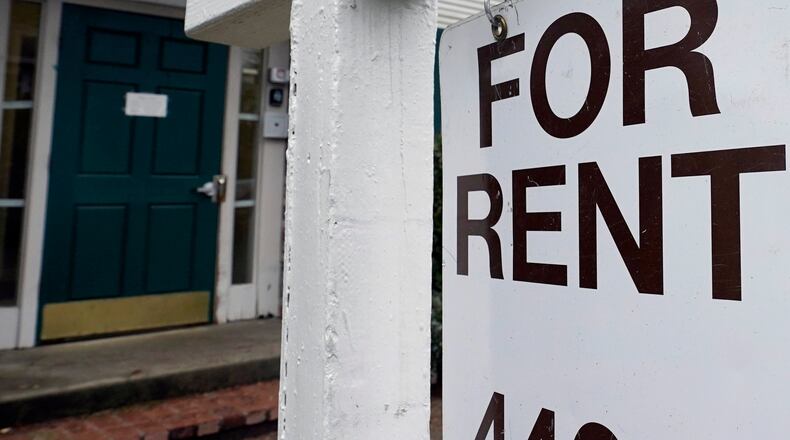For different reasons, however, MVCAP and SELF have had to pause their application intake — SELF’s staff was overwhelmed by applications and paused on Dec. 19 to begin working through a backlog, while the MVCAP program’s sole funding pool was cut off through a federal deadline on Sept. 30, 2022.
“We couldn’t spend any more of that funding after then,” said Erin Jeffries, MVCAP’s vice president and COO. “It wasn’t our decision, unfortunately.”
The next round of funding that would allow MVCAP to set up a new rental assistance program didn’t come until late in the year. Final federal guidelines came in late November, an application was submitted to the state in December, and the agency is currently finalizing its application portal that will allow folks to see if they qualify. Jeffries said the program should be up by the end of January — almost four months after the prior program ended.
“This is a brand new program with brand new guidelines that came from different legislation than our old program,” Jeffries said. “It’s just taking us some time to get everything put together so we can stand up a new process.”
SELF spokesperson Rachel Sheets said the agency, which paused its application process about two weeks ago, is taking the time to work through a backlog of applications.
“We don’t have a date in mind as to when we’re going to reopen the application process,” Sheets said. “We still have just so many to get to that we can’t see a date in mind just yet.”
The agency previously paused its applications for nearly two months, starting in early August.
Sheets and Jeffries said the areas they serve are still expressing a significant need for emergency rental assistance, even though it’s lightened up a bit since the beginning of the pandemic.
“If you go back to summer and fall of 2020, the need was great. The need remained great for a year or two at least,” Jeffries said. “As we’re entering 2023, there still is a great need in our community, but it’s not as great as it was at the beginning of the pandemic.”
Sheets said SELF has seen many residents who are struggling with “complications that build up over time.” Those complications can be any combination of time off work due to illness, the increased cost of living brought on by the pandemic’s economic impact, or higher utility bills.
“Every situation is unique that people are facing. We’re noticing that no two situations are exactly the same, but there are definitely people who are struggling still,” Sheets said. “We’re in calendar year three of this and there’s still a lot of struggle.”
As MVCAP sets its new program up and as SELF picks through its backlog of applications, both agencies have been redirecting folks who need emergency rental assistance to the State of Ohio’s Home Relief Grant, a system that launched in November that is equally accessible to all residents, regardless of location.
“We’ve heard good things from our customers about the program in terms of the response times that they’re getting, and it seems to be working very well,” Jeffries said.
Contrasted to MVCAP and SELF, Clark County’s OIC has been able to field emergency rental applications without interruption, according to Executive Director Mike Calabrese.
His agency recently received $3.1 million that it could begin spending at the tail end of 2022. Those same funds need to be expended before Sept. 30, 2025. In December, OIC used over $231,000 of those funds to pay off arrearages of 75 Clark County households.
Calabrese said it was “difficult to assess” how Clark County’s level of need has changed as its residents try to move on from the pandemic. Calabrese cited large spikes in rental costs and the rising costs of consumer goods driving the need today.
“This money won’t last at the rate that we’re going,” Calabrese said.
The Ohio Legislature recently passed House Bill 45, which, among other things, will allocate $161 million of Ohio’s “Emergency Rental Assistance 2″ funds to be spread to local agencies like MVCAP, SELF and OIC.
As passed, the bill requires all of those funds to be used to alleviate arrearages incurred before Dec. 31, 2021 — verbiage that would specifically disallow 2022 backrent to be paid off.
Phil Cole, the executive director of the Ohio Association of Community Action Agencies (OACAA), said he believes that inclusion to be a clerical error, and, as such, his agency has asked Gov. Mike DeWine to line-item veto that guideline before the bill becomes law.
Cole said there are no outstanding arrearages from renters incurred before Dec. 31, 2022 — “Those are all paid.”
About the Author

